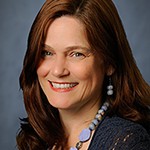Related Stories
Sheps home to new national leadership program for clinically active health care providers from all disciplines
 A new training program invites health care providers from all backgrounds, including clinicians, nurses, social workers, dentists and allied health professionals, to apply for training and support to tackle real, complex health programs in their communities to build a Culture of Health nationwide.
A new training program invites health care providers from all backgrounds, including clinicians, nurses, social workers, dentists and allied health professionals, to apply for training and support to tackle real, complex health programs in their communities to build a Culture of Health nationwide.
Clinicians play a unique role in improving health as health care providers, consumers, and trusted members of communities. But, often, traditional education and training do not fully equip clinicians to advance long-term, transformative community change.
Clinical Scholars is a new national leadership development program that prepares health care providers to build an inclusive society where health is a guiding value and all people live longer, healthier lives. This shift toward a Culture of Health will be fueled by leadership, innovation, and collaboration from clinicians pursuing leading-edge research, policies, and practice.
Clinically active health care providers from a diverse array of disciplines—from nurses and physicians to pharmacists, dentists, and allied health professionals—are invited to apply. Teams of interprofessional clinicians will receive intensive learning, mentoring, coaching, and networking opportunities to lead transformative change—centered on health equity—in their communities.
The University of North Carolina at Chapel Hill is proud to lead Clinical Scholars, in partnership with AcademyHealth, Community Campus Partnerships for Health, FastTrack Leadership, and InsideOut, and the University of Nebraska Medical Center. The program is supported by the Robert Wood Johnson Foundation and includes collaboration among many UNC-CH Centers and departments, including the Cecil G. Sheps Center for Health Services Research, School of Medicine, Gillings School of Global Public Health, Center for Health Equity Research, the Department of Social Medicine and Leadership Core of the Food Systems Leadership Institute.
The UNC team is led by Giselle Corbie-Smith, MD, MSc and Claudia S.P. Fernandez, PhD and three deputy directors to focus
on the three primary aspects of the program:
- Rachel Berthiaume, Deputy Director for Distance Education
- Kathy Donnald, MS, Deputy Director for OnSite Education
- Melissa A. Green, MPH, Deputy Director for Recruitment and Communications
Each year, Clinical Scholars will select up to 50 clinically active health care providers. Applicants must have achieved the
highest degree in their field, completed all clinical training in their discipline at least five years prior to applying, and be fully licensed in their profession. Applicants are encouraged to apply as interdisciplinary teams of three to five health professionals, although individuals and pairs may apply as well. Each participant will receive $35,000 annual fellowship.
This program seeks clinicians who are frustrated with the status quo in their communities and the systems in which they operate, and who are committed to significantly improving community health. Interprofessional teams will select a real-world project to address over the course of the program. They will also attend seven in-person leadership sessions, participate in distance-based learning, and benefit from mentoring, executive coaching, and a high degree of networking with other program participants and the Robert Wood Johnson Foundation.
Clinical Scholars is one of four national change leadership programs, designed by the Robert Wood Johnson Foundation to extend the influence and impact of leaders working to build a Culture of Health. For decades, the Foundation has supported the development and diversity of health care leaders with landmark programs for clinical scholars, physicians, nurses, and researchers. Building on this legacy, the Foundation created these programs to invest in leaders from more diverse sectors—leaders who have the passion, ingenuity, and influence required to navigate the rapidly evolving health and health care environment and the factors that shape it.
The additional three change leadership programs are based at leading institutions and organizations across the country, and include Interdisciplinary Research Leaders for researchers and community leaders (University of Minnesota); Culture of Health Leaders for collaborations across disciplines and sectors (National Collaborative for Health Equity and CommonHealth ACTION) and Health Policy Research Scholars for first- or second-year doctoral scholars (Johns Hopkins University). More information on these programs and who may apply is available at www.rwjf.org/changeleaders.
The call for applications for each program closes April 19, 2016. Visit www.clinical-scholars.org to learn more about Clinical Scholars, sign up for updates or access an informational webinar.


You must be logged in to post a comment.